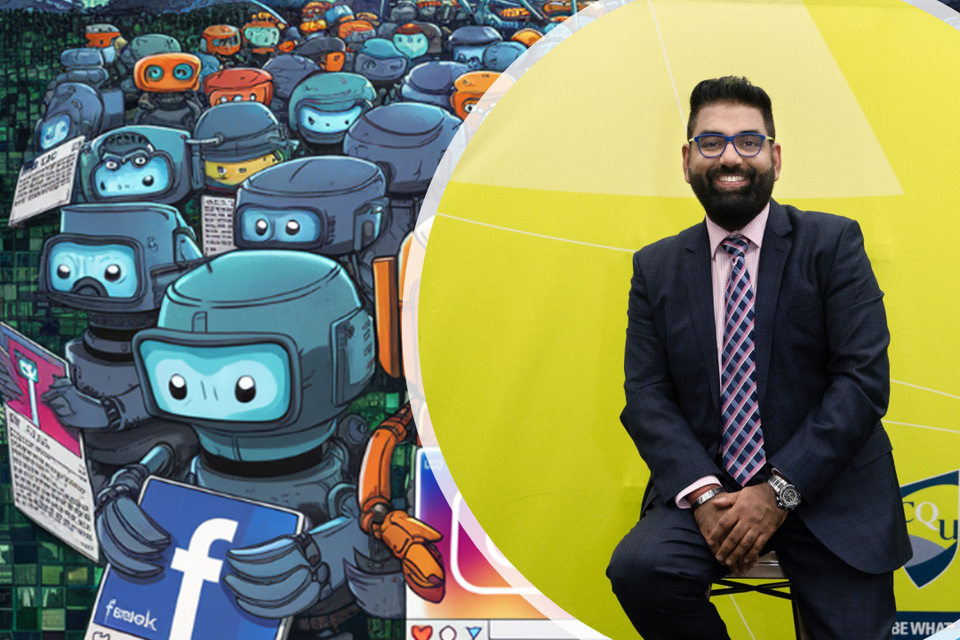Beware of bots on social media, says CQU academic
Every time you access your social media' a social bot could be watching' and not only that' there could be several in your list of 'friends'.
That's according to CQUniversity IT academic Associate Professor Ritesh Chugh' who says the rise of automated robotic software programs is already here.
'Social bots' which mimic human actions and behaviour' are used specifically on social media platforms'' Dr Chugh said.
'Social bots can be used for posting messages' making friend requests' helping with purchases' engaging and interacting with users at randomised intervals' or even stealing and harvesting personal information through algorithms' artificial intelligence and data mining.
Dr Chugh said social bots work by infiltrating social media to reach out to a large number of people' and most interactions that real users have with social bots are unknown to them.
'This creates non-genuine social relationships and one study has shown that bots deceived almost 30 per cent of users into thinking they were human'' he said.
'Almost half of the Twitter followers of influential people such as Elon Musk and Bill Gates were found to be fake. Fake followers and friends on social media appear to bolster popularity' prestige and social status.'
Dr Chugh said one study showed that fake female social bot profiles were getting 20 to 30 times the number of friend requests over fake male social bot profiles. Other research found that the more friends a user has on Facebook' the greater the increased likelihood of accepting a friend request from a social bot.
He said that while not all social bots were malicious' many had the capability to disseminate political propaganda' influence opinion and enhance the popularity of people and products.
'Many harmful social bots can be used for persuasion' smear campaigns and deception and spreading misinformation'' he said.
'The unsafe social bots often trick users into taking unwanted actions such as clicking on a pop-up scam link' seducing online daters to pay for premium services' and taking control of users' accounts to distribute malicious links. Social bots can also steal user data and cause problems by masquerading as genuine online people'' he said.
But he said although identifying a 'social bot' was a challenge' it wasn't impossible.
'Identification of' and protection from' social bots is not easy because the actions of bots replicate those of humans. Nevertheless' watch out for user accounts that appear to repost more regularly than humans' have longer usernames and newer accounts'' he said.
'Pages that have no personal profile pictures or unrealistic images' and followers with no posts should also be treated suspiciously.
'A Facebook page with thousands of page likes but relatively little content or lack of interaction or comments would indicate bot activity. Often' posts or tweets that divert to a spam website indicate the work of a bot.
'Do not accept friend requests from people you do not know' as they could be coming from bots aiming to spam you' present you with malicious links' or steal your information. And do not send friend requests to people you don't know as they could be bots too.'
He said Twitter users could run this quick check to see how many of their followers are real.

